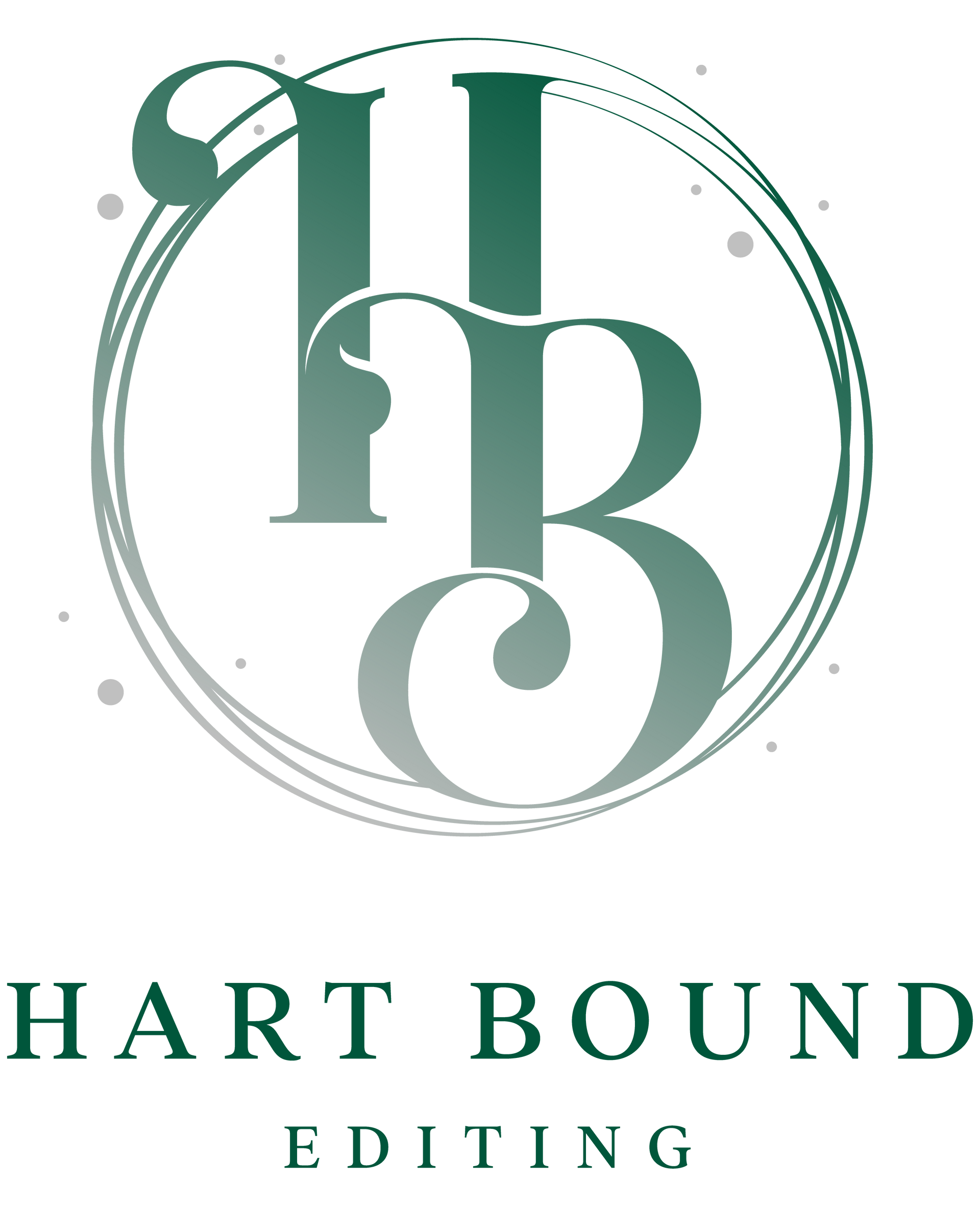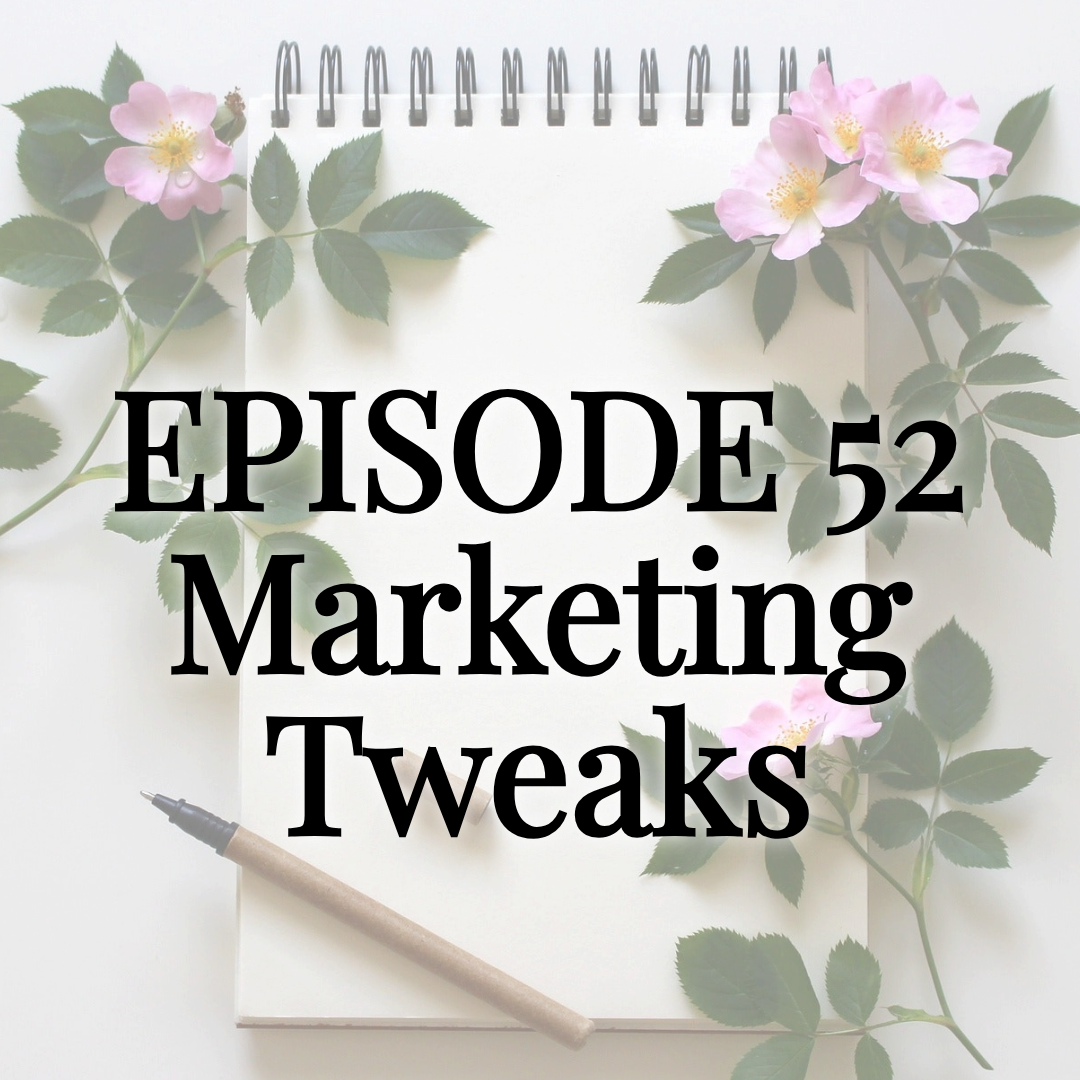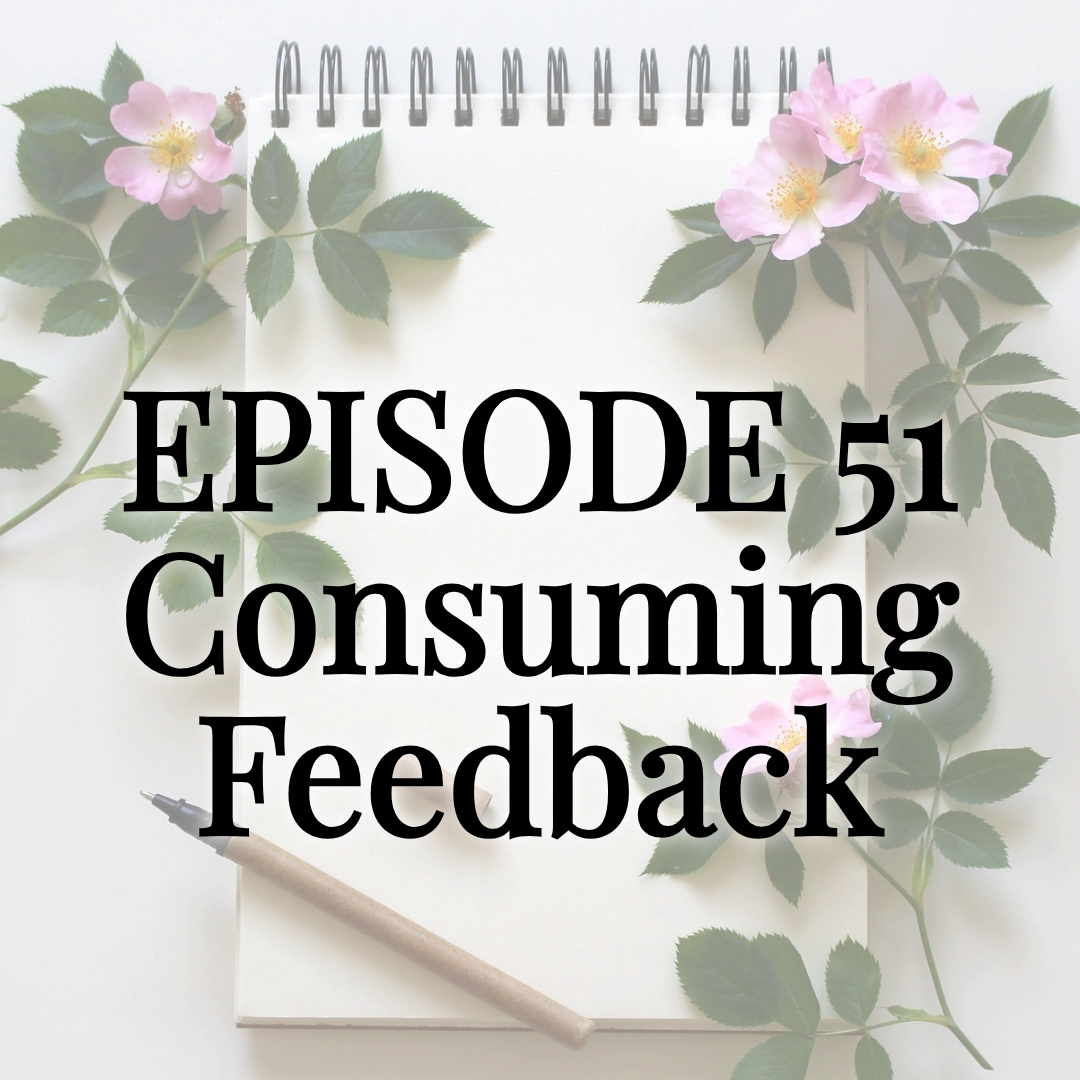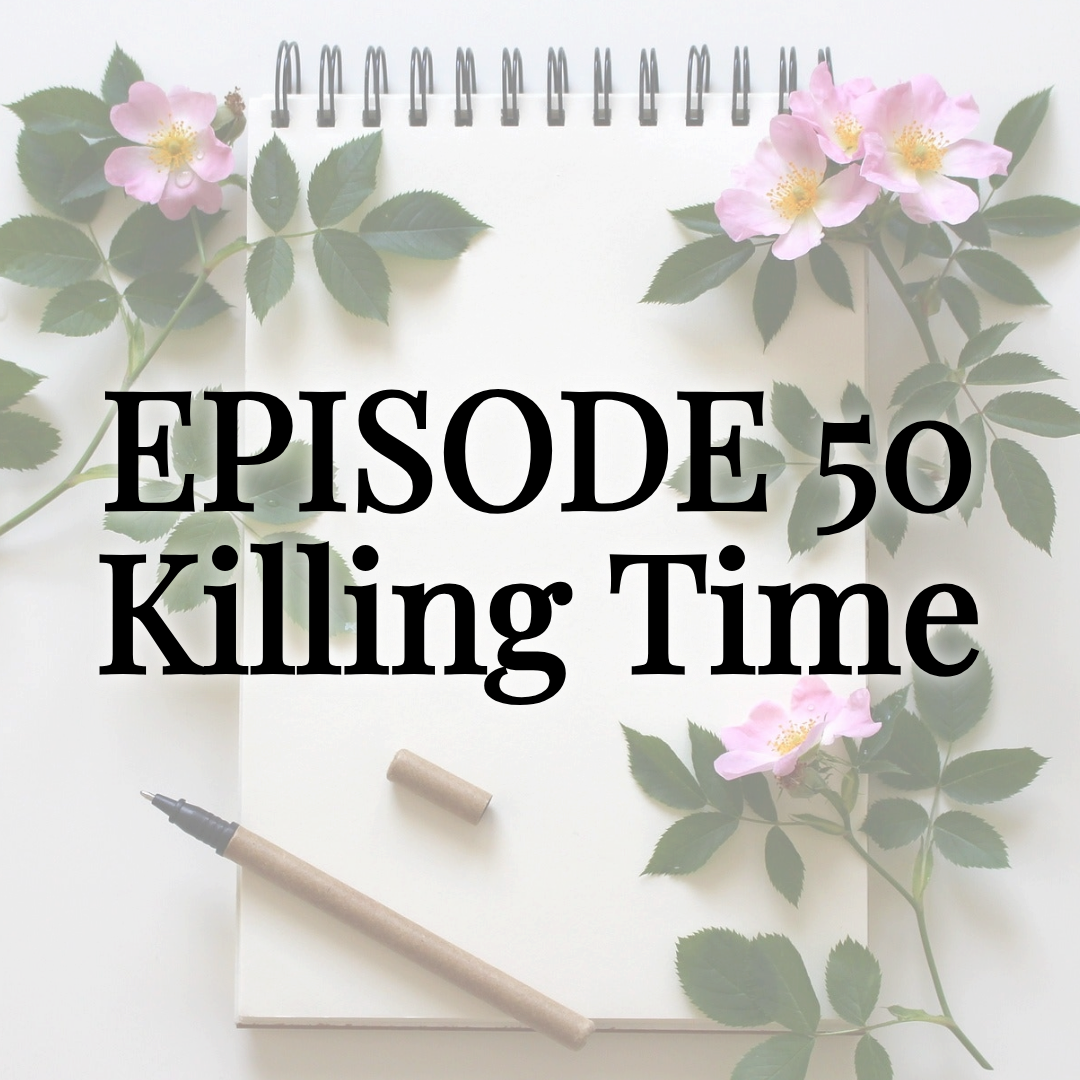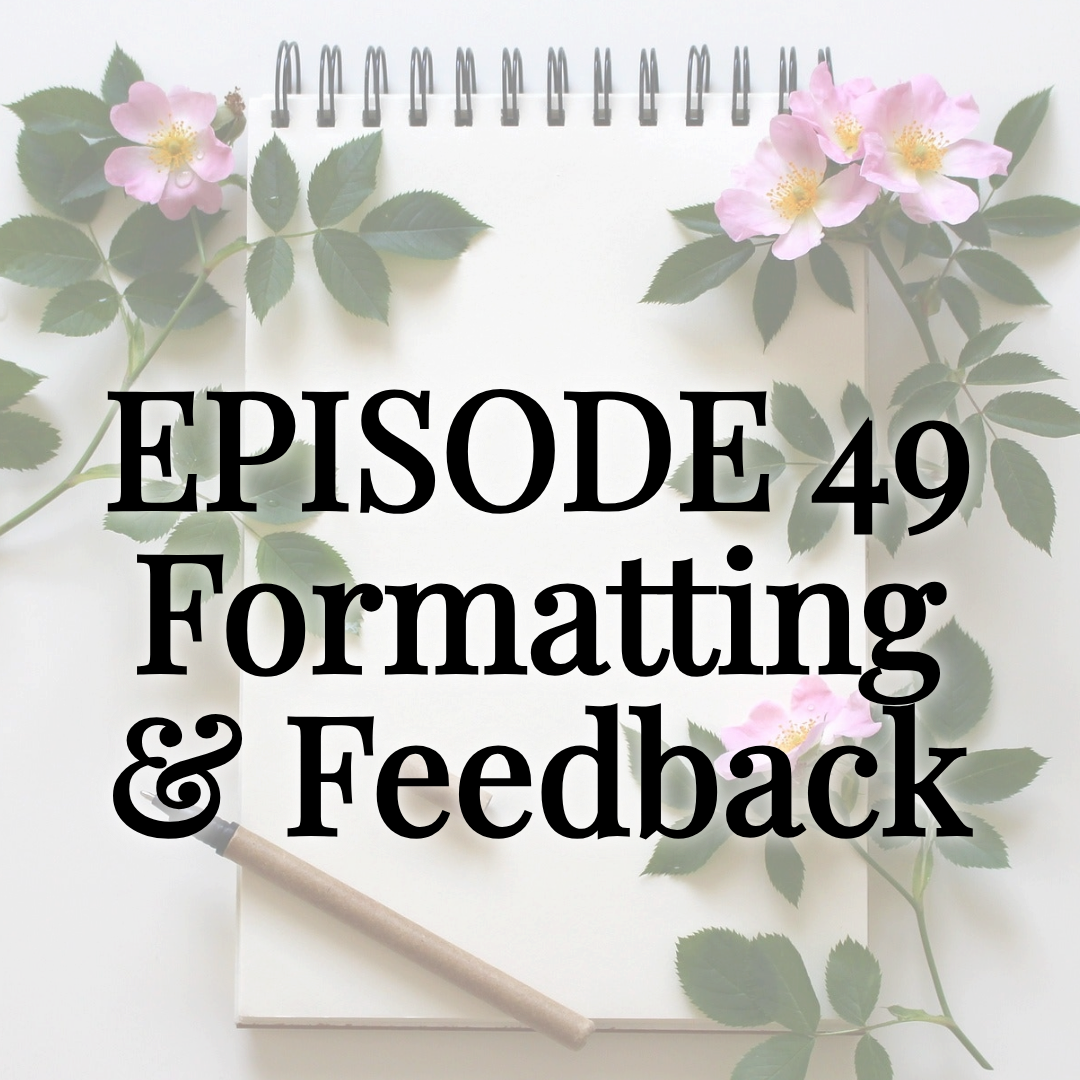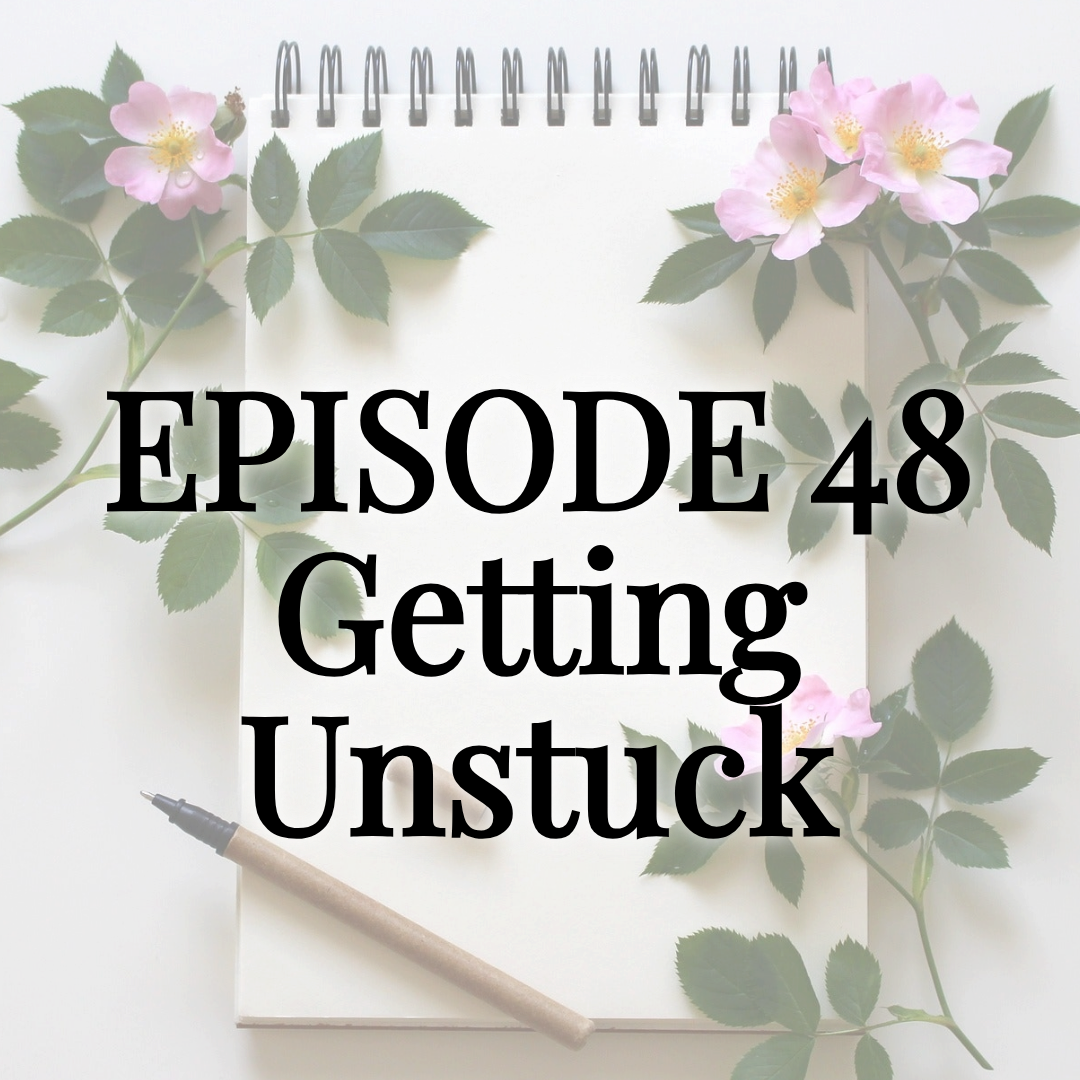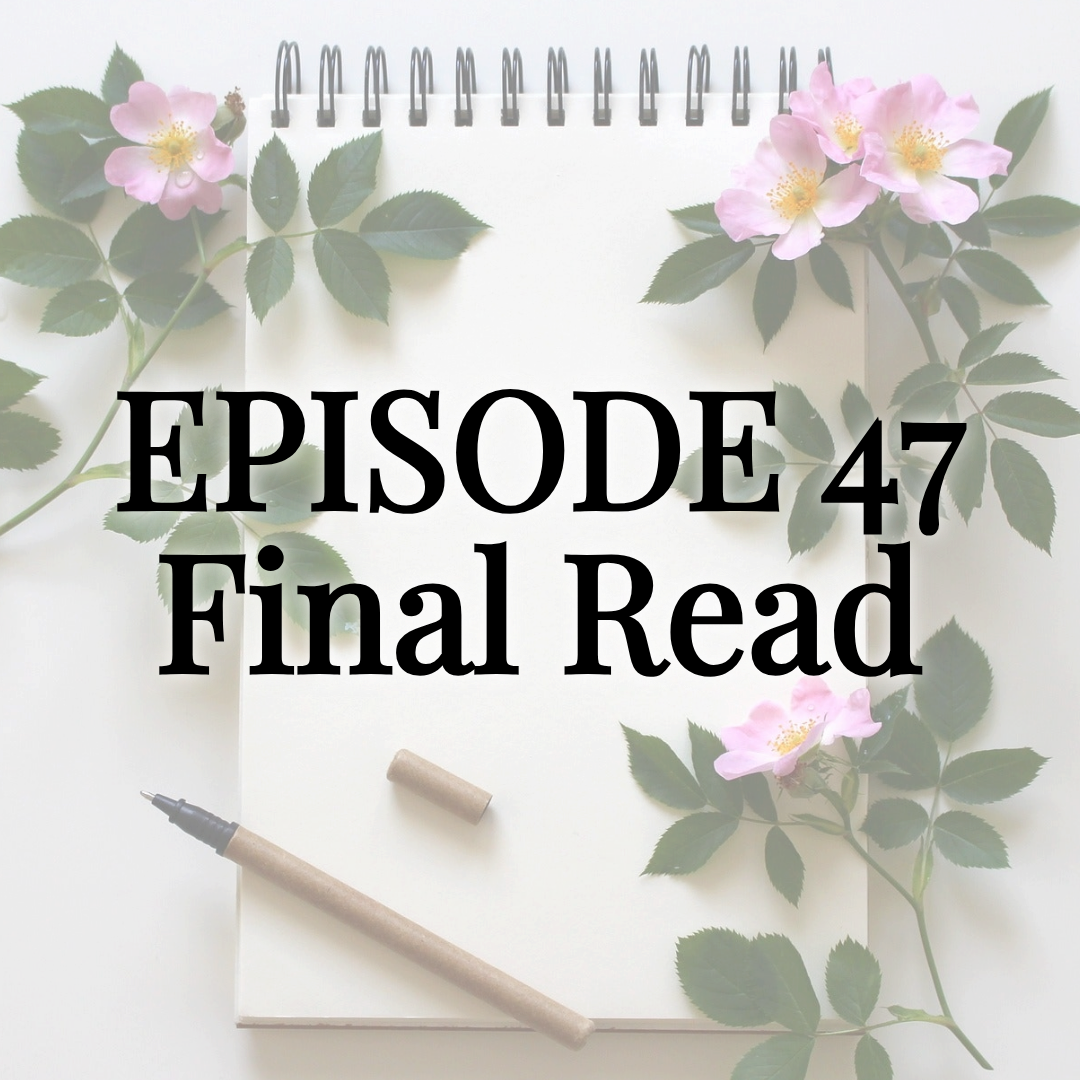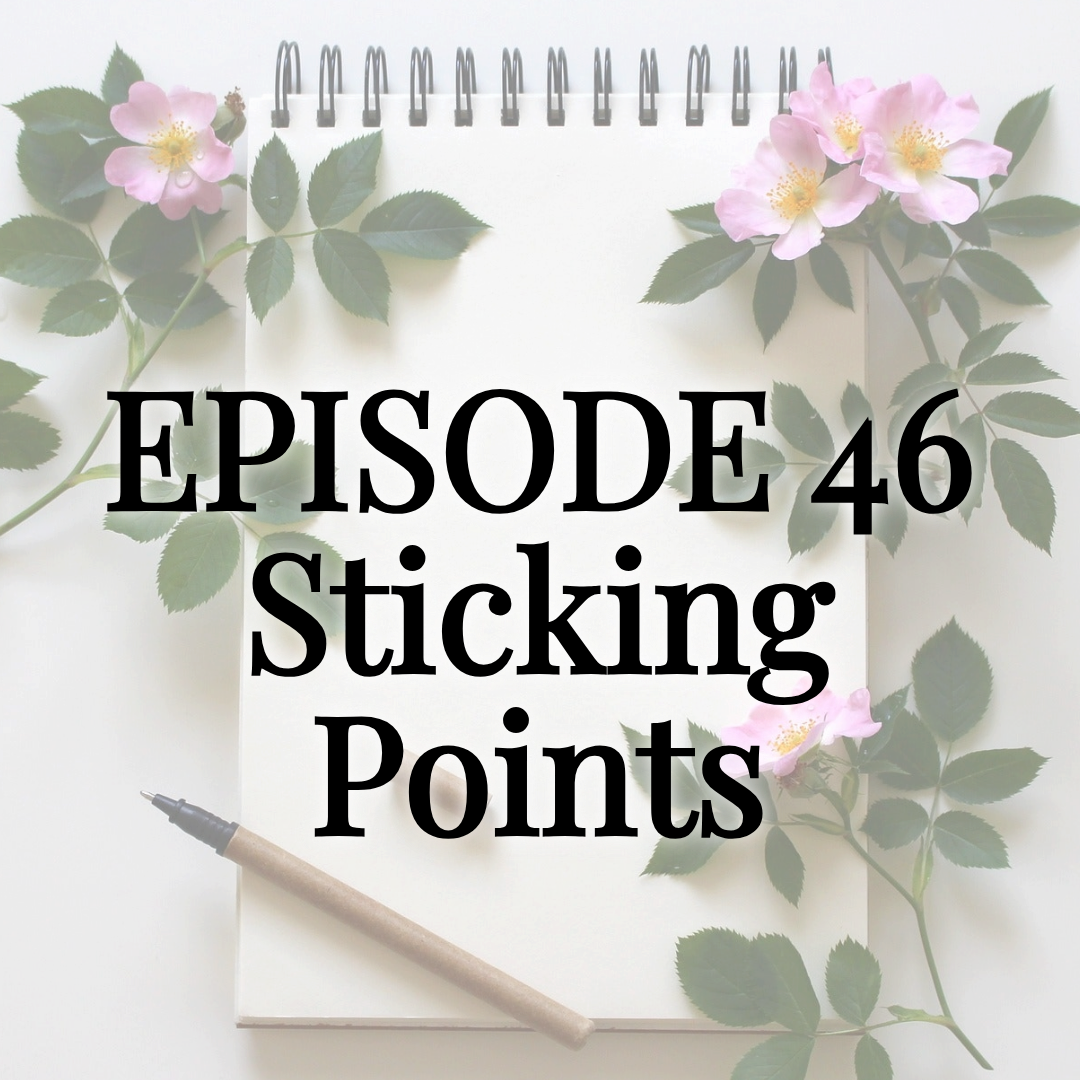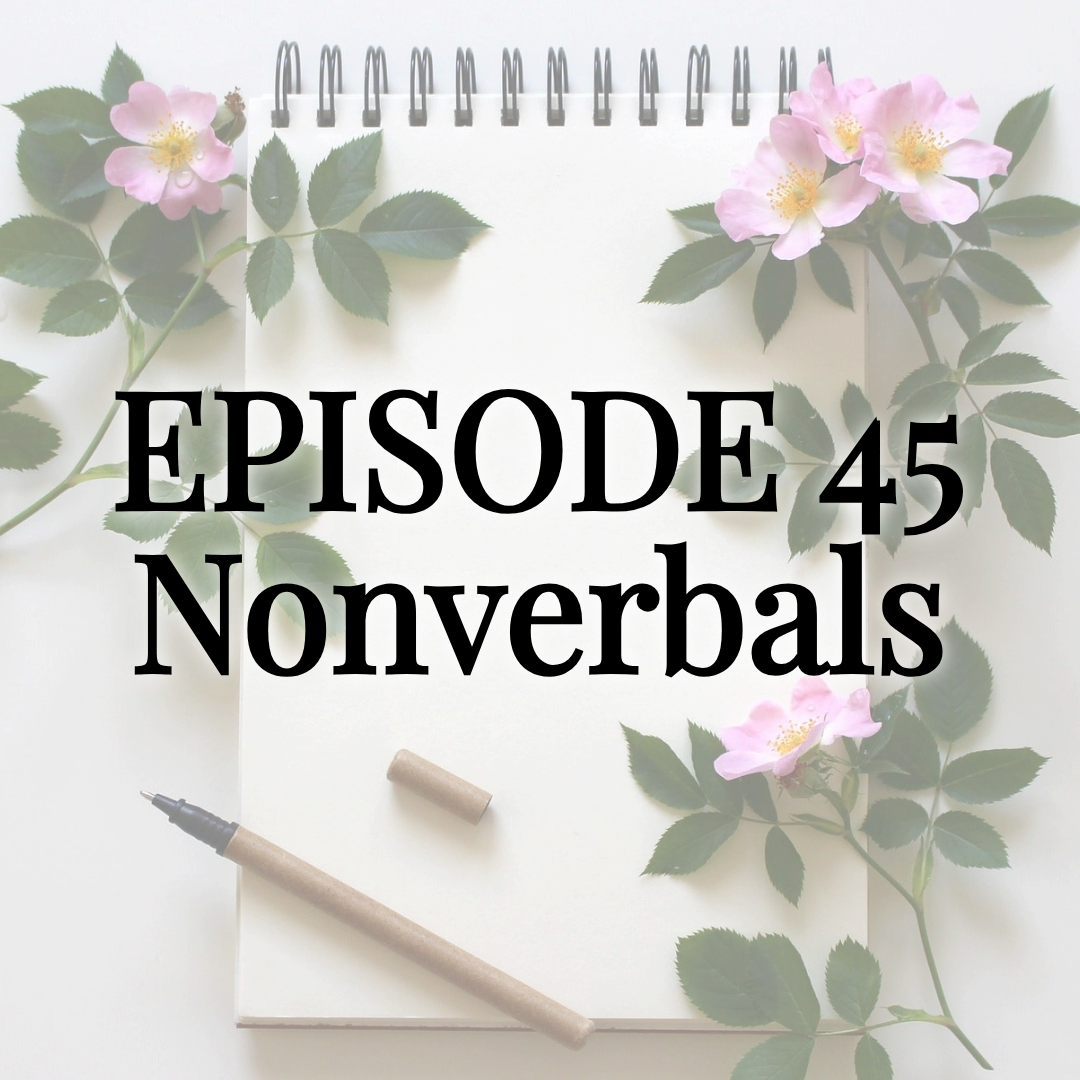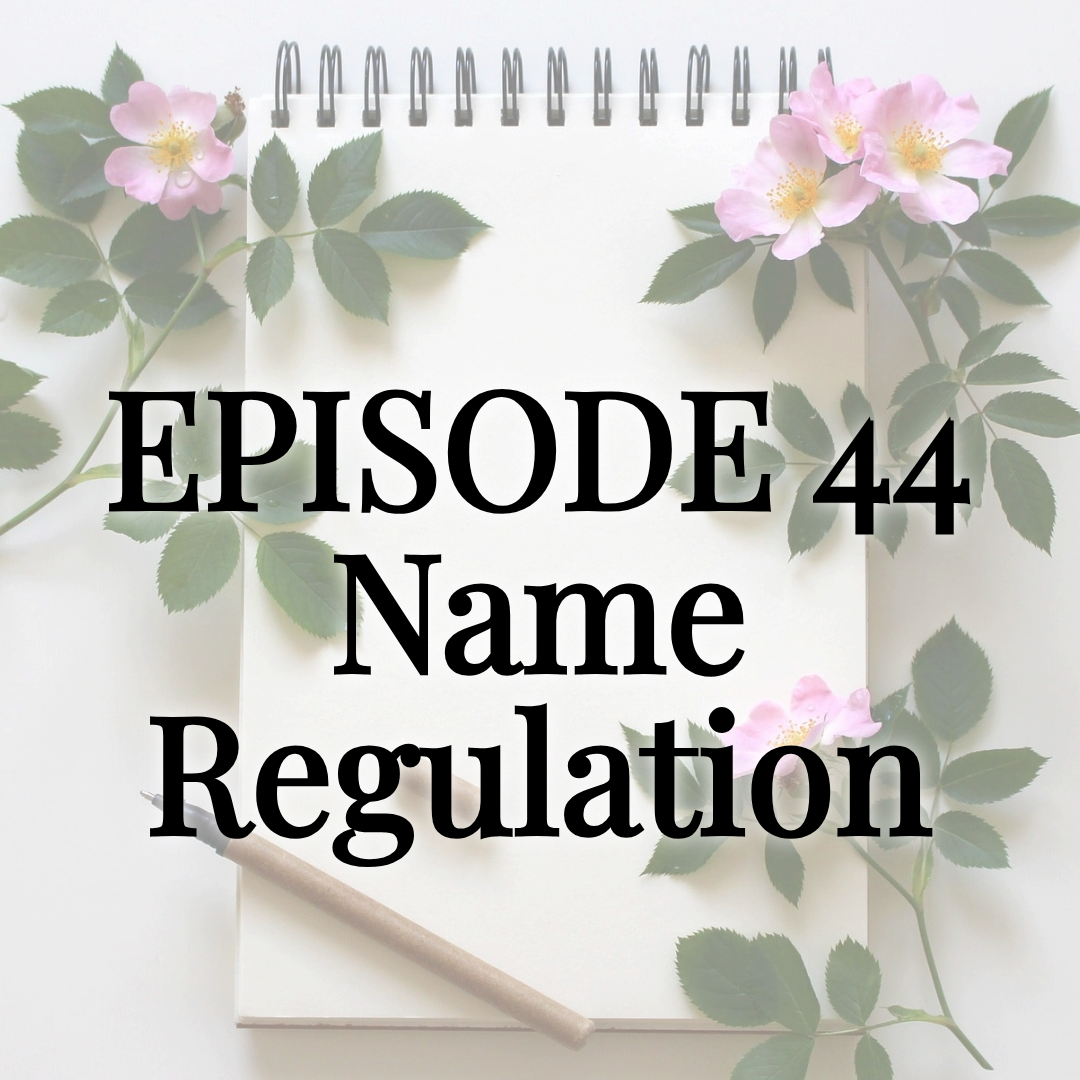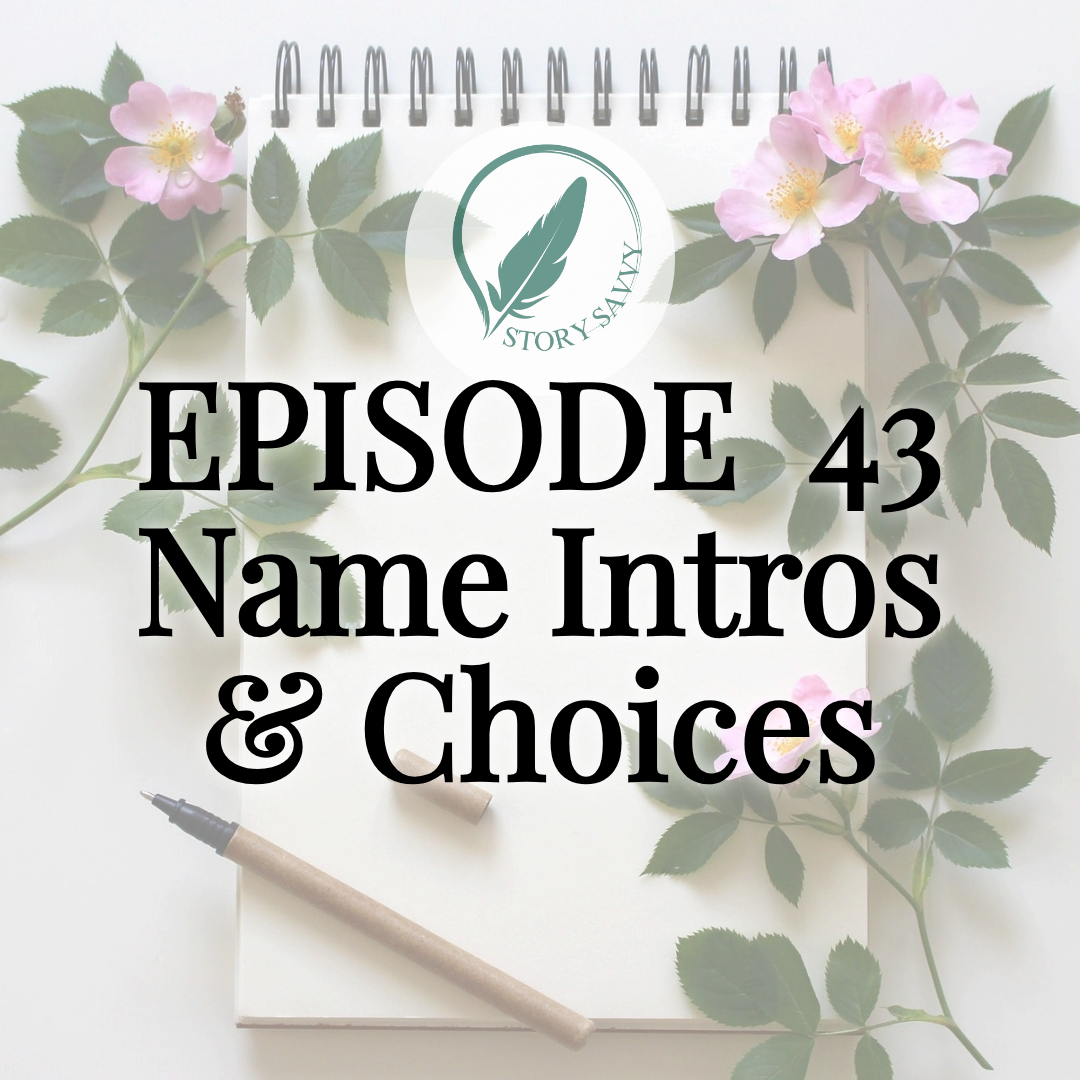Deciding Your Genre: Story Savvy Self-Editing 2
Deciding Your Genre: After-episode thoughts, overview, and transcript...
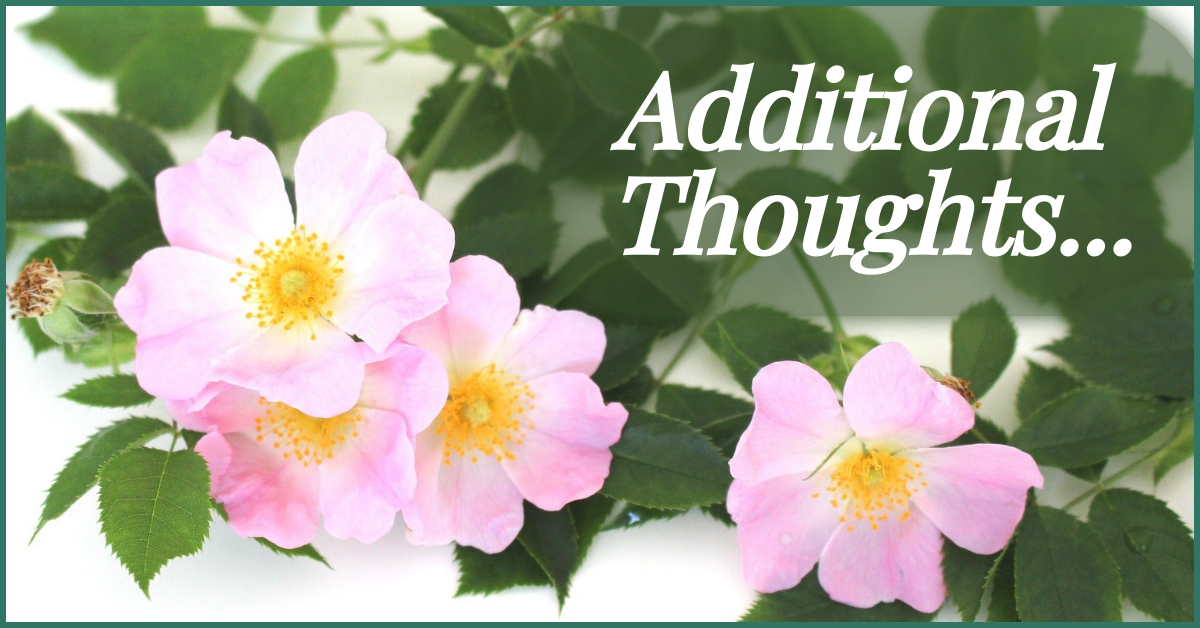
I have rethought the answer I gave in the podcast episode to the question "When does genre choice NOT matter?"
-Genre DOES matter in how you tell the story, in addition to your audience. What language structure and vocabulary are expected can be affected by genre, as can what person and tense choices are getting complimented or complained about by readers in that genre, and more.
I'm always growing, always evolving, and occasionally need time to sit with questions to come up with better answers. 😊
Episode 2 Overview:
Deciding Your Genre
“Can I name my genre and subgenre? Why do I need to?”
This week in our self-editing tips for authors guide, we cover how to know your genre, avoid genre mistakes, and meet reader expectations. Rebecca, founder of Hart Bound Editing, teams up with Agnes Wolfe, host of Authors' Alcove [http://authorsalcove.com], in episode two of the 52-week Story Savvy series, helping authors refine their manuscripts and improve their storytelling through self-editing.
Aspiring middle-grade fantasy author Agnes Wolfe asks developmental editor Rebecca key questions about different book genres, from high fantasy to romance, and how understanding your genre impacts story structure, tone, and eventual marketing success.
In this episode, we dive into common genre mistakes to avoid and how to ensure your book finds the right readers. Who are you writing for? How will they find you? And what promises do your choices make? This insightful discussion is a must-listen for fantasy writers and authors of all genres.
Recommended Resources Shared During the Show:
- Story Grid Clover - Blog post with a downloadable infographic to help you pinpoint your genre: https://storygrid.com/genres-of-writing/
- Amazon Best Seller List - You can explore Amazon’s list of genres and subgenres to help identify your novel’s genre and see listed comparable books already categorized in each list: https://www.amazon.com/Best-Sellers-Kindle-Store-Romantic-Fantasy/zgbs/digital-text/14530456011/ref=zg_bs_pg_1_digital-text?_encoding=UTF8&pg=1
Want your questions answered? Place them in the comments below!
See you next week for episode 3:
How to Satisfy Your Genre Readers!
Episode 2 Transcript:
Knowing Your Genre
Rebecca: Hello and welcome to the Hart Bound Editing Podcast. This is episode 2 of the weekly Story Savvy series where we tackle the 52 biggest self-editing topics and tips to help you make your good story great, as an aspiring author asks me, a developmental editor, all of the questions that you've wanted to.
Agnes: Hi, my name is Agnes Wolfe, an aspiring fantasy author who hopes to release her first middle-grade fantasy later this year, and also the host and founder of Authors' Alcove. I'm here to go over the companion topic to last week's episode on identifying who you are writing to—this time, genre and subgenre. So, I'll be doing so with the developmental editor Rebecca, who has helped dozens of authors refine their books. Rebecca?
Rebecca: I am so excited to dive into genres and subgenres today, including how to pick the right ones, why it matters, and much more.
By the end of this episode, you'll hopefully feel confident in choosing the exact right categories and labels for your story. Agnes, I know you're still struggling a bit with choosing the specific genre labels for your upcoming book, so what are some of your first questions around that?
Agnes: I'm still not totally sure what genre my book fits into exactly, and I'm hoping to figure that out by the end of this episode. First of all, why is knowing this important? And will labeling my book the wrong genre affect its overall success?
Rebecca: Knowing your genre is super important to making sure that your book ends up in the hands of people who really want to read it. Getting that label wrong will mean that people who aren’t looking for what you’re writing, who will be frustrated, surprised in a bad way, or disappointed with your book might pick it up, and you’re going to end up with negative reviews, you’re going to end up with sort of shelving confusions. So, nailing your genre is really important at every stage for what you’re including, how you’re editing it, and especially how you’re marketing it.
Agnes: So, what exactly is genre? Because I’ve been told that fantasy is not a genre, which is part of why I’m stuck. What is my genre? What would be considered a genre, and what would be considered a subgenre?
Rebecca: So, you are correct that fantasy is both a genre and not a genre, so let me explain a little bit about sort of setting genres and content genres.
Fantasy is a setting genre, as would be historical, and that is just to say that this is sort of the reality that this story is taking place in, or the time that this story is taking place in. But a content genre is things like this is an action story, or a love story, or a mystery, or a police procedural, and the easiest way to tell the difference is if it's a setting genre, then you can tell any kind of story within that setting. You can tell fantasy romance, you can tell fantasy action, you could even do a fantasy police procedural.
Same thing with historical, same thing with any of these setting genres. And a content genre is a kind of story that can be told in any setting. So romance, action, all of those kind of things.
And when you're picking genres, you often need to pick one of each. So, if you're writing fantasy, which is one of the most popular right now, one of the common setting genres, that's easy. You know that you've put anything in there that is not possible in reality be that magic, or dragons, or vampires, or whatever like that.
But then you need to also decide “what kind of story am I telling?” And that answer is your content genre. I feel like you had more to that question. What am I forgetting here?
Agnes: What was the subgenre?
Rebecca: Gotcha, gotcha. So, within those overarching—you have the overarching setting genre of fantasy. A subgenre of that would be urban fantasy. So, it's not just magic, it's magic in a modern tech city. Or you have high fantasy, so it's not just fantasy, it's fantasy in its own magical world that you have invented from the ground up.
And then with the content genres, let's say you're writing romance. Romance is the umbrella genre, content genre, and within that you have so many subgenres for that content. You can have dark romance, you can have mafia romance, you can have sweet, you can have small town, you can have spicy, you can have erotica.
So, it's basically your genre is this umbrella term that tells you just the core of the setting or the content, and then your subgenres are just getting more specific from that. And you can have multiple subgenres in your book, in addition to having that one primary setting and that one primary content genre.
Agnes: How can we know what all the genre options are? And is there a list out there somewhere?
Rebecca: I’m sure that if you Google it you can find all kinds of lists. What I recommend—if you're writing for yourself, is that this doesn't matter nearly as much. If you're just writing to have fun, you don't need to know your genre. You can write whatever the heck you want, and it'll be delightful.
But if you're writing for genre marketing or for literary awards, I recommend two resources.
First of all, is the Story Grid Genre Clover, and it's really fun because it helps you narrow down your structure—if it's an arch plot, which is what most full-length novels are, if it's a mini plot, if it's an anti-plot—and then it goes on from there to help you nail down your reality. So, you've got reality, you've got fantasy, you've got a couple others in the mix, and then into the content genres, like am I telling an action story? Am I telling a romance story?
So that's a good resource for the writing and editing stages. It's not going to help you when you get to marketing. So, for that, I recommend the Amazon.com Kindle Bestseller Lists, because it is this wonderful little nested branch of genres.
And I will be happy to provide a link to an example of this in the episode description, but you can look at each of the sort of steps up that the categories go through to get to wherever your niche is. And it might be something like dark romance nested within contemporary romance, nested within romance, nested within fiction, nested within women's fiction, and all of this kind of just sort of chain down.
And if you can follow that chain to your niche, take a note of it, and that will help you just see what the different options are as you go up and down each layer in this process.
Agnes: So, mine is fantasy, but it is not set in the present day, and it's in a completely make-believe world. What type of fantasy would this be? So, like, what genre would that be?
Rebecca: So going back to what we were talking about, you know that your umbrella setting genre is fantasy. So, within that, if it's not urban, it's not modern, it's probably high fantasy.
And that means that you have created a world where magic is just sort of accepted. Or it might be low fantasy, where the comparisons to reality—our reality that you and I are living in right now—are a lot closer, and magic is just sort of this background thing.
So, in your story, how big is magic? And is it generally known about?
Agnes: It's big. So, I think it'd be considered high fantasy. It has dragons, and the dragons give power. So, I think it'd be considered high.
Rebecca: Absolutely, I agree with that.
Agnes: So what if my book falls into several genres? How do I know which one is my main one?
Rebecca: Great question. And we're definitely going to come back to this next week with knowing what's expected in a genre, because how you make that choice is determining which genre or which subgenre that you have represented is the strongest.
And you determine that by knowing if you're hitting all of the points for it—if you need to, you know, add in missing scenes, missing obligatory moments, missing obligatory characters.
So how you decide which is the primary, because most books have a little bit of at least two or three, but how you decide the primary is just which one is sort of front and center.
And that can be hard to see in your own work. I know when I started writing novels, that was one of the things that I really struggled with and needed to get outside perspective on—was just, I don't know if I'm writing fantasy with romance or romance with fantasy.
So, deciding that based on the genre research that you do into what you think might be your strongest is definitely half that answer, and the other half is getting outside feedback.
Agnes: How do I check that I made the right choice or chose an accurate genre descriptor?
Rebecca: You do this by researching other books that you think are going to be like your book and then seeing if they actually are.
And again, we're going to get into this sort of comp research, and comp is either comparative or competition, depending on how you want to look at it.
But, reading extensively in your genre, and reading information about your genre, and just making sure, objectively—as objectively as you can, separating your emotional connection from it—see if your book actually matches those expectations and matches what people will be looking for if they go looking for your book by the genre that you've chosen.
Agnes: So, what happens if we pick the wrong genre?
Rebecca: Like I'd said earlier, I don't remember if it was last week or earlier in this episode, you get people who are not wanting that book reading that book. And this is a problem from the, I don't know, just sort of kindness as an author perspective, where you want to give people what they're going to love.
But if you get the genre wrong, you're going to have someone who wants to read urban fantasy romance picking up middle-grade YA high fantasy because the genre was mislabeled, or the presenting material—the title, the cover, the blurb—misrepresent the genre.
And they're going to be very disappointed that they didn't get what they wanted, that they didn't get what they were looking for.
And in addition to that, one of the possible downfalls of choosing the wrong genre is no one's going to give it a chance in the first place, because it's going to get shelved—be that literally in a bookstore or metaphorically on a digital platform—it's going to get shelved wrong.
And it's going to be stuck on a shelf between books that aren't like it. So, people who are looking for that kind of book aren't going to be looking on that shelf. And the people who are looking at those shelves aren't looking for that kind of book. So, knowing your genre and getting it right is going to prevent you from those downfalls of either disappointing the reader or having them give it a chance in the first place.
Agnes: I remember an example of when I talked to you about a particular book. You saw that the cover and the description seemed like dark fantasy. And you're a romantacy writer. And this was a romantacy book. But you were expecting dark fantasy. And I know that caused a lot of distraction when you went to read it. And so like even with people who love a particular genre, the misleading can cause someone to falter.
Rebecca: Absolutely. And I’m so glad you brought that up. I’d actually forgotten about that. But that was one of the books that we reviewed on Authors’ Alcove. And you’re absolutely right.
I spent the entire book just kind of going, “Okay, when’s it going to get dark?” I spent the entire book braced for something that never happened. I spent the entire book waiting, and just sort of anticipating this nugget that had been promised by the cover that never showed up. And you’re absolutely right. I’m so glad you mentioned that. That is definitely one of the downsides of not nailing your genre promise.
Agnes: So, on the flip side, when does genre NOT matter?
Rebecca: Genre doesn’t matter when you’re drafting. And I know that might sound like I’m contradicting myself, but you can’t be overthinking what you’re writing while you’re writing it.
Like I said in last week’s episode, the goal has to be just getting the book done. Done is—done is God!
So, when you should be thinking about genre is when you’re planning. This can be if you’re a pantser, you know, just thinking about what chapter you’re going to write that day. If you’re a planner like me, it’s going to be outlining the entire book before you get going. So, thinking about genre during planning? Absolutely. Thinking about genre during self-editing? 100%. Taking feedback from editors, even picking your editors? Genre matters there, too. And it matters a ton in publishing. But genre does not matter when you’re just trying to get the book done. And, it shouldn’t matter too much when you’re getting into how you’re actually telling your story. That should depend a lot more on audience, like we talked about last week. That’s dependent on the exact person sitting across the table from you. That’s who you’re telling the story to. That’s how you’re telling the story. Genre dictates what’s in the story, but it should not have that much impact on how you’re telling it.
Agnes: So, I do know we need to wrap up, but I do want to ask one last question: Fantasy is a very broad genre. There are dark fantasy, romantacy, urban, epic, among just a few. What are some things that all fantasy readers would expect, and what things are unique to each?
Rebecca: So, going back to that idea of genre versus subgenre, the only expectation for fantasy is that there is magic. And that is super easy to meet that expectation.
But knowing what other expectations people have is going to depend on how you nail down your subgenre, and your sub-sub-subgenre, and your secondary subgenre, and all of that fun stuff.
Which, again, I recommend either Story Grid or the Amazon Kindle categories for seeing what those options are and getting an idea for what that field looks like.
So having magic is the only expectation for fantasy.
And then going down to subcategories, you might be writing romantic fantasy, which is my wheelhouse. In that situation, you are expected to also meet romance expectations.
If you're writing middle-grade, then you need to know what's expected specifically in high fantasy, which we established yours is, middle-grade, and dragon books, because dragon stories have their set of expectations.
So how to know what’s expected? You have to know your subgenres as well as your overarching umbrella genre.
And we're going to go a lot deeper into that next week when we talk about not only knowing your genre, which was this week’s topic, but using your genre as well.
Agnes: Thank you so much for your insight. It has helped me a lot.
Rebecca: Of course! Knowing your exact genres is so vital to both story craft and eventual marketing.
So, like I said, next week we’ll step further and explore how to satisfy your ideal reader’s genre expectations as authors.
For now, I really want to thank our listeners. If you could help us out by liking and subscribing to the Hart Bound Editing Podcast and the Authors' Alcove Podcast, we’d be very grateful. And you can find lots more content for fantasy authors and readers beyond this joint series in both of those podcasts.
Agnes: And I can’t wait to dive deeper into genre and subgenre. See you then.
Rebecca: Bye.
Thank you so much for listening to the Hart Bound Editing Podcast. I look forward to bringing you more content to help you make a good story great, so it can change lives and change your world. Follow along to hear more, or visit my website—linked in the description—to learn how I can help you and your story to flourish.
See you next time!
